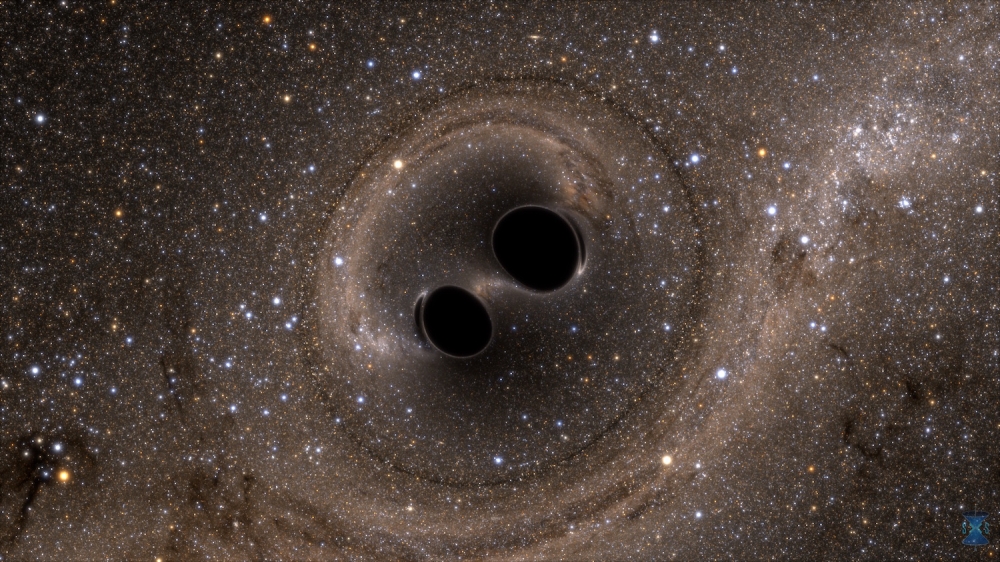Can LIGO Find the Missing Dark Matter?

A recent study provides a renewed look at whether the universe's dark matter could be primordial black holes — and, if so, whether LIGO could detect them. [dark matter. [SXS Lensing]
By Susanna Kohler on 27 September 2017
Today promises to be an exciting day in the world of gravitational-wave detections. To keep with the theme, we thought we’d use this opportunity to take a renewed look at an interesting question about the Laser Interferometer Gravitational-Wave Observatory (LIGO) and dark matter: if dark matter is made up of primordial black holes, will LIGO be able to detect them?
Black Holes in the Early Universe
The black holes we generally think about in the context of gravitational-wave detections are black holes formed by the collapse of massive stars. Indeed, LIGO’s detections have thus far been of merging black holes weighing between 7 and 35 solar masses — the perfect sizes to have formed from massive-star collapses.
See full text